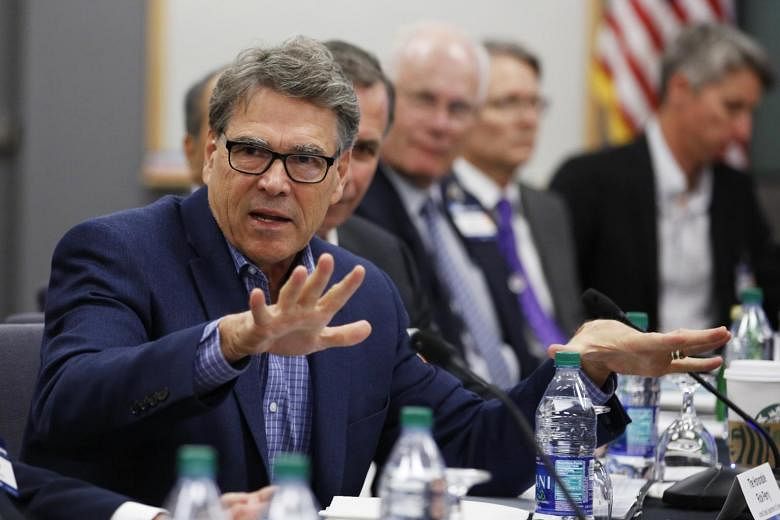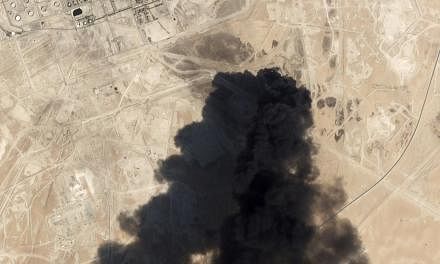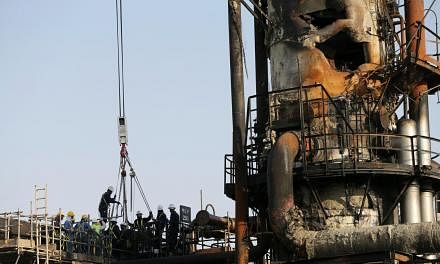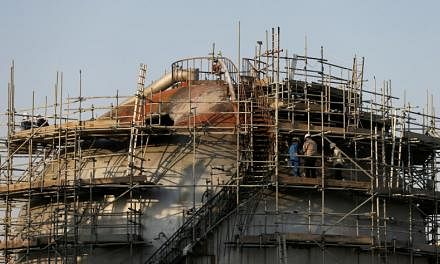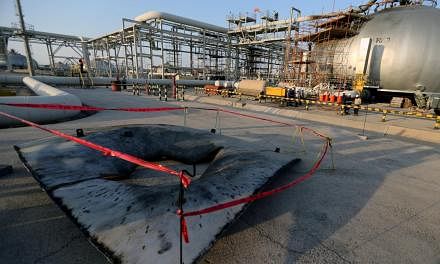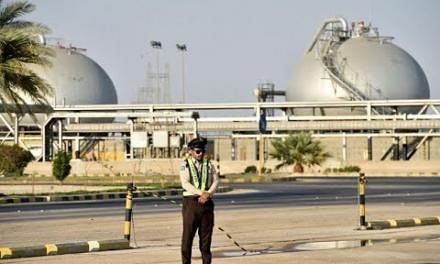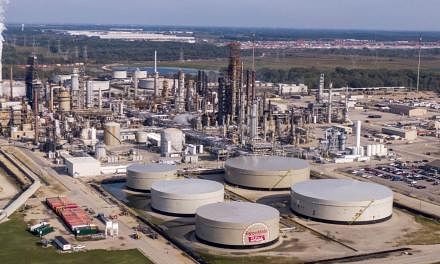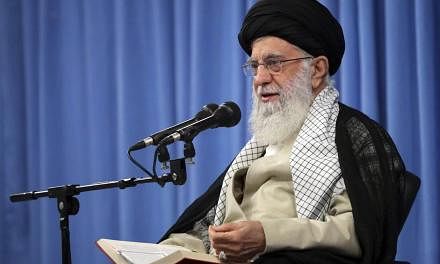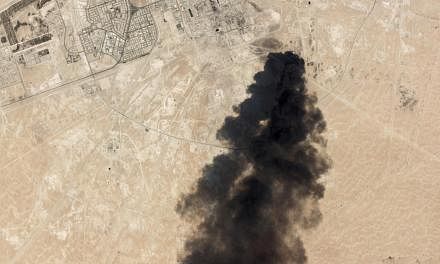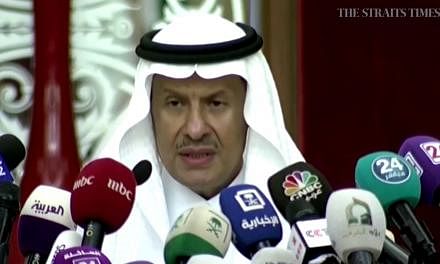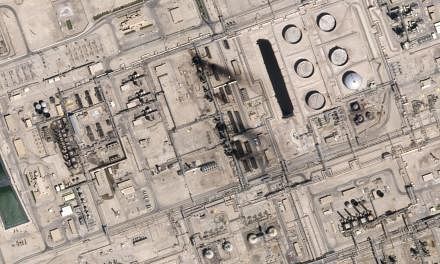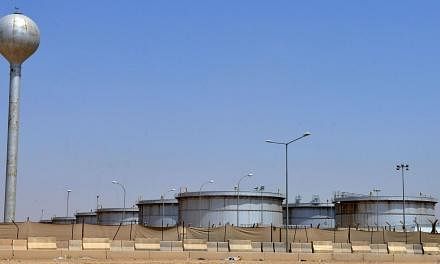DUBAI • US officials pointed the finger at Iran, and President Donald Trump said that Washington was "locked and loaded" to retaliate after weekend drone attacks on Saudi oil facilities that cut into global energy supplies and further fuelled a regional crisis.
Last Saturday's attacks on Saudi Arabia's Abqaiq plant and its Khurais oilfield led to the interruption of an estimated 5.7 million barrels per day of the kingdom's crude oil production, equivalent to more than 5 per cent of the world's daily supply.
The United States government produced satellite photos showing what officials said were at least 19 points of impact at two Saudi energy facilities, including damage at the heart of the kingdom's crucial oil processing plant at Abqaiq.
Officials said the photos show impacts consistent with the attack coming from the direction of Iran or Iraq, rather than from Yemen to the south.
"There is reason to believe that we know the culprit, (we) are locked and loaded depending on verification, but are waiting to hear from the kingdom as to who they believe was the cause of this attack, and under what terms we would proceed!" Mr Trump said on Twitter on Sunday.
US Energy Secretary Rick Perry pinned the blame squarely on Iran for "an attack on the global economy and the global energy market".
"The United States wholeheartedly condemns Iran's attack on Saudi Arabia, and we call on other nations to do the same," he said in a speech at an annual meeting in Vienna of the United Nations nuclear watchdog IAEA. He added that he was confident the oil market "is resilient and will respond positively".
Iranian Foreign Ministry spokes-man Abbas Mousavi called the US accusations of Iranian involvement in Saturday's attacks "unacceptable and entirely baseless".
Iraq denied that its territory was used for an attack on the kingdom. US officials said a strike from there would be a violation of Iraq's sovereignty.
Saudi Arabia and Iran have been enemies for decades and are fighting a number of proxy wars, including in Yemen, where Saudi forces have been fighting against the Houthis for four years.
Tension in the oil-producing Gulf region has dramatically escalated this year after Mr Trump imposed severe US sanctions on Iran aimed at halting its oil exports altogether.
For months, Iranian officials have issued veiled threats, saying that if Teheran is blocked from exporting oil, other countries will not be able to do so either. However, Iran has denied a role in specific attacks, including bombings of tankers in the Gulf and previous strikes claimed by the Houthis.
Washington has imposed its "maximum pressure" strategy on Iran since last year, when Mr Trump pulled out of an international deal that gave Teheran access to world trade in return for curbs on its nuclear programme.
US allies in Europe oppose Mr Trump's strategy, arguing that it provides no clear mechanism to defuse tension. Mr Trump has said his goal is to force Iran to negotiate a tougher agreement, and has left open the possibility of talks with President Hassan Rouhani at an upcoming United Nations meeting. Iran says there can be no talks until Washington lifts sanctions.
Russia and China said it was wrong to jump to conclusions about who was to blame for the attack on Saudi Arabia.
"Proposals on tough retaliatory actions, which appear to have been discussed in Washington, are even more unacceptable," Russia's Foreign Ministry said in a statement.
Britain - Washington's close ally, but wary of its hardline Iran policy - stopped short of ascribing blame, but described the assault as a "wanton violation of international law".
Two sources briefed on state oil company Saudi Aramco's operations told Reuters that it might take months for Saudi oil production to return to normal. Earlier estimates had suggested it could take weeks.
Oil prices surged yesterday by almost 20 per cent before coming off peaks. The intraday jump was the biggest since the 1991 Gulf War.
Prices eased after Mr Trump announced that he would release US emergency supplies and producers said there were enough stocks stored up worldwide to make up for the shortfall. But traders still spoke of a long-term price increase as markets absorb the proof that global supply can be sharply hit.
REUTERS, ASSOCIATED PRESS
